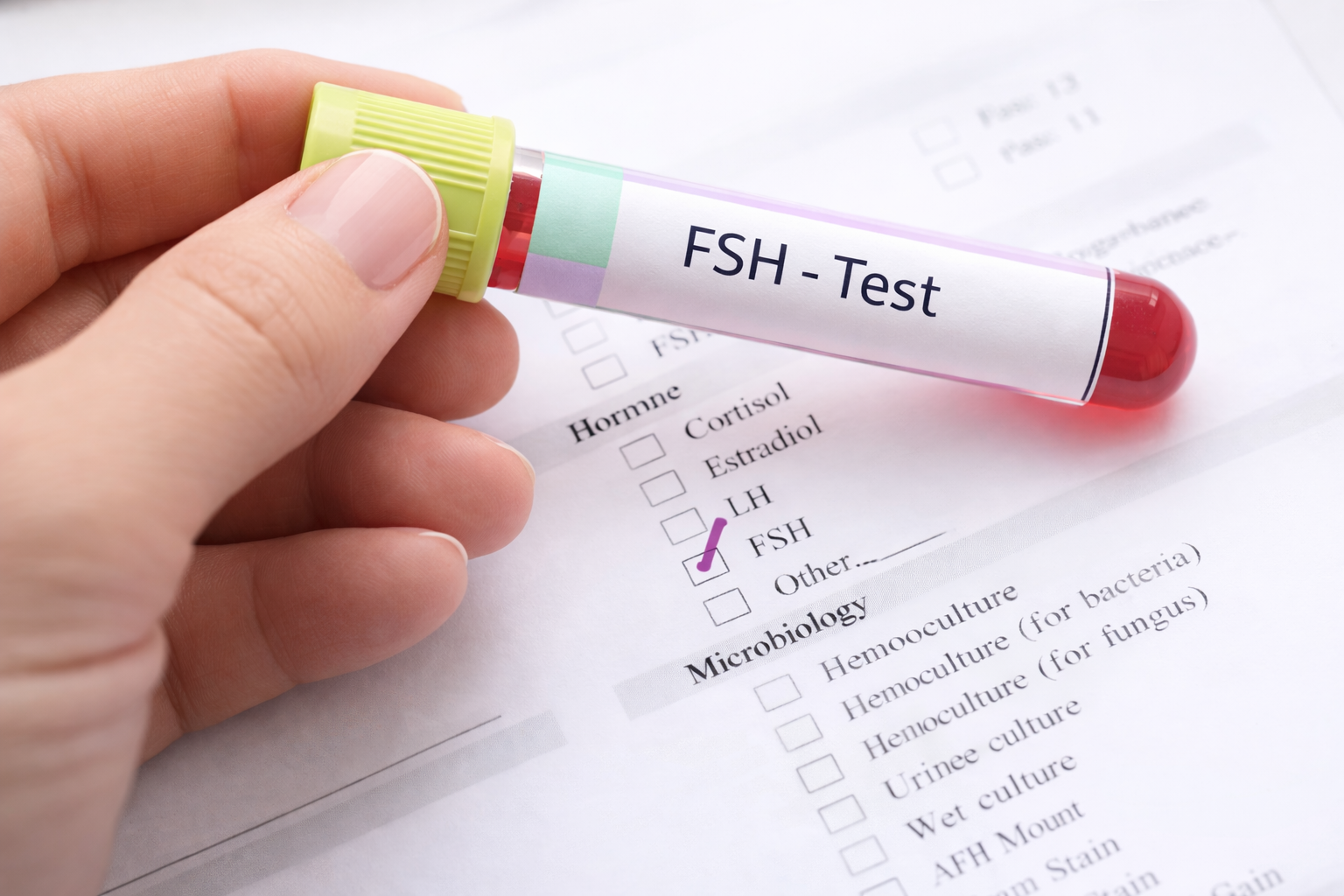The latest menopause research from 1,600+ healthcare professionals reveals surprising insights about brain fog, weight changes, and hormone therapy that could change how you navigate midlife.

The latest menopause research from 1,600+ healthcare professionals reveals surprising insights about brain fog, weight changes, and hormone therapy that could change how you navigate midlife.
This October, the Oova team joined thousands of clinicians, scientists, and innovators at The Menopause Society's 2025 Annual Meeting in Orlando, with its theme "Optimizing Health and Longevity at Menopause and Beyond." The energy wasn't just electric, it was transformative. From breakthrough research on "menopause brain" to new understanding of metabolic changes, what we learned challenges everything we thought we knew about this transition.
Here are the most actionable takeaways that could change your menopause journey.
1. Your Brain Isn't Breaking, It's Actually Rewiring (And That's Good News)
The Research: If you've forgotten why you walked into a room or lost a word mid-sentence, you're experiencing what Dr. Pauline Maki from the University of Illinois at Chicago calls temporary cognitive changes tied to fluctuating estrogen, not permanent decline.
The Science: New research shows that vasomotor symptoms (hot flashes) relate more strongly to memory issues when measured objectively rather than by self-report. Dr. Rebecca Thurston's work reveals that frequent hot flashes connect to changes in vascular health and stress response, creating that "brain fog" feeling.
What You Can Do:
- Track your hot flash patterns, cognitive symptoms and hormone patterns together
- Consider early hormone therapy if appropriate, it may support memory by preserving metabolism in the hippocampus
- Focus on vascular health through exercise and stress management
- Know that these changes are typically temporary during the transition
2. Perimenopause Is Your Cardiovascular Wake-Up Call
The Research: Sessions on cardiovascular outcomes during the menopause transition highlighted that midlife represents both vulnerability and opportunity for heart health.
The Science: As estrogen declines:
- Lipoprotein(a) levels spike
- Small-vessel dysfunction becomes more common
- Abdominal fat storage increases
- Managing hot flashes may actually improve cardiovascular outcomes
What You Can Do:
- Schedule a comprehensive cardiac screening in your 40s
- Monitor blood pressure and cholesterol more frequently
- Consider newer therapies like GLP-1s and SGLT2 inhibitors with your doctor
- Don't ignore vasomotor symptoms, treating them helps your heart too
3. Bone Loss Starts Earlier Than Your Doctor Might Check
The Research: Dr. Michael McClung's presentation revealed that significant bone loss begins 1-2 years before your final period, long before most women get their first DEXA scan.
The Numbers:
- Spinal bone density can drop 10% within 5 years post-menopause
- Most women don't get screened until their 60s
- Early intervention is far more effective than later treatment
What You Can Do:
- Request a baseline DEXA scan in your early 40s, not 60s
- Start strength training now (seriously, today)
- Ensure adequate calcium and vitamin D intake
- Discuss bone-protective strategies during perimenopause
4. Weight Gain Has New Rules (And New Solutions)
The Research: Dr. Monica Christmas's Menopause 101 course covered managing menopause symptoms for optimal weight loss, while sessions on "Nutrient-Stimulated Hormone-Based (NuSH) Therapeutics" revealed new treatment approaches.
The Science Behind Midlife Weight Changes:
- Estrogen loss drives fat storage to the abdomen
- Sleep disruption spikes ghrelin (hunger hormone)
- Metabolism genuinely changes, it's not "all in your head"
- Stress compounds everything
What You Can Do:
- Prioritize sleep quality over everything else
- Add resistance training 3x weekly (cardio alone won't cut it)
- Consider medical support: newer GLP-1 medications show promise
- Stop blaming yourself, this is biology, not willpower
Read: Complete Guide to Losing Weight in Perimenopause
5. Hormone Therapy Is Getting Personalized (Finally)
The Research: New safety data on nonhormonal treatments like elinzanetant showed excellent tolerability over one year Contemporary OB/GYN, while traditional hormone therapy guidance continues to evolve.
Key Updates:
- Micronized progesterone remains safest for uterine protection
- Estrogen therapy after surgical menopause is protective for bone and heart health, even in BRCA carriers
- Testosterone therapy helps with low desire but only at physiologic doses
- Timing matters — early initiation shows more benefits!
What You Can Do:
- Work with a menopause-certified practitioner
- Discuss your complete health history and family risk factors
- Consider both hormonal and non-hormonal options
- Remember: there's no one-size-fits-all approach
6. The Future Is Whole-Woman Care
The Big Picture: The Presidential Symposium on "Mind, Brain, and Body Connections" emphasized how hormone-brain interactions, trauma, the gut-brain axis, and mental health all intersect during menopause.
From discussions on Indigenous health to the microbiome's role, the message was clear: menopause isn't just hormonal: it's physical, emotional, metabolic, and social.
The Bottom Line: Data-Driven, Personalized Care Is Here
With over 500 women in brain health studies alone and 234,000 in metabolic research presented at the meeting, we're moving beyond guesswork. The future of menopause care is:
- Individualized based on your unique biology
- Integrated across all body systems
- Informed by massive datasets
- Inclusive of diverse experiences
At Oova, this validates our mission: quantifying hormonal transitions with precise, at-home testing so you have data you can trust and care that meets you where you are.
Ready to take control of your menopause journey? Start tracking your hormones today with Oova's at-home testing.
About the author

Sources
Information based on presentations at The Menopause Society 2025 Annual Meeting, October 21-25, 2025, Orlando, FL. Full abstracts will be published in the December 2025 issue of Menopause.
- Christmas, Monica M. "Menopause 101 Course." The Menopause Society 2025 Annual Meeting, 21 Oct. 2025, Hyatt Regency Orlando, Orlando, FL. Conference presentation.
- Faubion, Stephanie S., et al. "Menopause and the Workplace: Consensus Recommendations from The Menopause Society." Menopause, vol. 31, no. 9, Sept. 2024, pp. 741-749.
- Garrison, Jennifer. "Reframing Longevity and Extending Health Span in Women." The Menopause Society 2025 Annual Meeting, 23 Oct. 2025, Hyatt Regency Orlando, Orlando, FL. Keynote Address.
- Garrison, Jennifer, et al. "Ovarian Function and Female Aging." Buck Institute for Research on Aging, 2025, www.buckinstitute.org/lab/garrison-lab/.
- Kinney, Cheryl Cox, chair. "Optimizing Health and Longevity at Menopause and Beyond." The Menopause Society 2025 Annual Meeting Scientific Program, The Menopause Society, 21-25 Oct. 2025, menopause.org/annual-meetings/2025-annual-meeting/scientific-program.
- Maki, Pauline M. "Three Symptoms Linked to Cognitive Complaints." The Menopause Society Consumer Video and Podcast Series, 2025, menopause.org/patient-education/consumer-videos-podcasts.
- Maki, Pauline M., and Rebecca C. Thurston. "Menopause and Brain Health: Hormonal Changes Are Only Part of the Story." Frontiers in Neurology, vol. 11, 23 Sept. 2020, doi:10.3389/fneur.2020.562275.
- McClung, Michael. "Perimenopause and Bone Health." The Menopause Society 2025 Annual Meeting, 21-25 Oct. 2025, Hyatt Regency Orlando, Orlando, FL. Conference presentation.
- McClung, Michael R. "Did You Know Half of Bone Loss Happens Before Menopause?" Interview. Contemporary OB/GYN, 28 Oct. 2025, www.contemporaryobgyn.net/shorts/did-you-know-half-of-bone-loss-happens-before-menopause.
- Simon, James A., et al. "Pooled US Safety Data for Elinzanetant in Menopausal Women with Vasomotor Symptoms." The Menopause Society 2025 Annual Meeting, Oct. 2025, Hyatt Regency Orlando, Orlando, FL. Conference presentation.
- Soares, Claudio N. "Mind, Brain, and Body Connections: How Does That Really Work?" The Menopause Society 2025 Annual Meeting Presidential Symposium, 22 Oct. 2025, Hyatt Regency Orlando, Orlando, FL. Conference presentation.
- Splinter, Tallinn, et al. "Earlier Menopause and Reduced Cardiac Function Can Take a Toll on Brain Health." The Menopause Society, 21 Oct. 2025, menopause.org/press-releases/earlier-menopause-and-reduced-cardiac-function-can-take-a-toll-on-brain-health.
- The Menopause Society 2025 Annual Meeting: A Primary Care Preview. Patient Care Online, 11 Oct. 2025, www.patientcareonline.com/view/the-menopause-society-2025-annual-meeting-a-primary-care-preview.
- The Menopause Society Prepares to Convene in Orlando for 2025 Annual Meeting. Contemporary OB/GYN, 14 Oct. 2025, www.contemporaryobgyn.net/view/the-menopause-society-prepares-to-convene-in-orlando-for-2025-annual-meeting.
- Thurston, Rebecca C. "Vasomotor Symptoms and Cardiovascular Health: Findings from SWAN and the MsHeart/MsBrain Studies." Climacteric, vol. 27, no. 1, 2024, pp. 75-80.
- Thurston, Rebecca C., et al. "Menopausal Vasomotor Symptoms and Risk of Incident Cardiovascular Disease Events in SWAN." Journal of the American Heart Association, vol. 10, no. 3, 2 Feb. 2021, doi:10.1161/JAHA.120.017416.
- Thurston, Rebecca C., et al. "Menopausal Vasomotor Symptoms and White Matter Hyperintensities in Midlife Women." Neurology, vol. 100, no. 2, 10 Jan. 2023, pp. e133-e141.
About the Oova Blog:
Our content is developed with a commitment to high editorial standards and reliability. We prioritize referencing reputable sources and sharing where our insights come from. The Oova Blog is intended for informational purposes only and is never a substitute for professional medical advice. Always consult a healthcare provider before making any health decisions.



